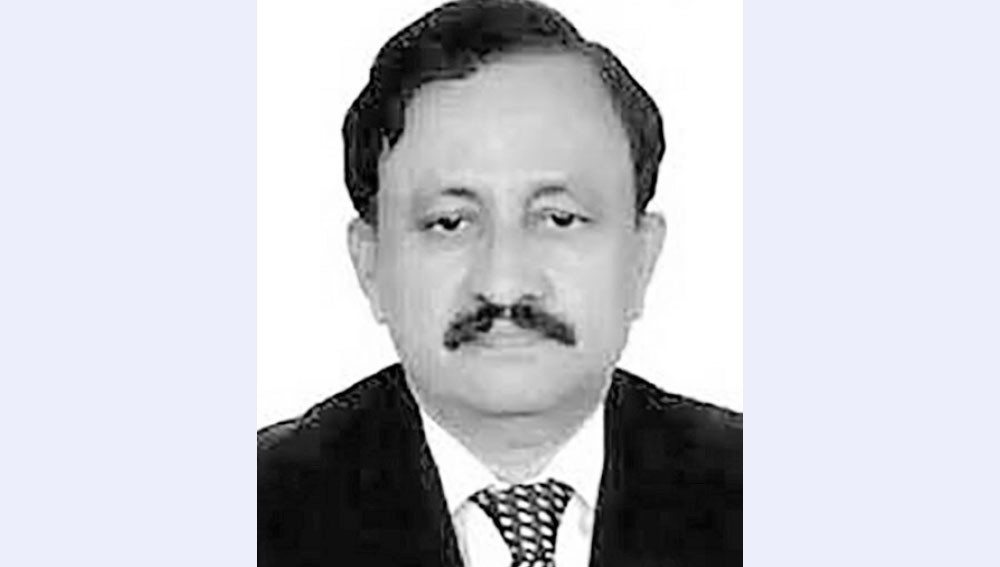Army needs to remain in field until national elections
Dr. SM Jahangir Alam
Published: 30 Apr 2025, 10:51 AM

Incidents of mugging, extortion, and violent crime continue across various parts of the country, raising serious concerns among both the business community and ordinary citizens. Law and order have deteriorated to such an extent that the situation could have become unmanageable without the military’s intervention. The Bangladesh Army, in coordination with other law enforcement agencies, has played a critical role in curbing crime and restoring stability nationwide.
Colonel Md Shafiqul Islam, representing the army at a press conference on 17 April, stated that the armed forces are operating strictly under government directives to maintain peace and order. During the last two months, the army has arrested a wide range of criminals—including members of teen gangs, listed offenders, drug traffickers, kidnappers, smugglers, fraudsters, extortionists, robbers, and muggers. In the same period, the army recovered 320 illegal weapons and 564 rounds of ammunition. Since 5 August, a total of 9,370 illegal weapons and 285,052 rounds of ammunition have been seized.
Colonel Islam also reported that the army has intervened in 232 disorderly incidents in two months—37 involving educational institutions, 24 concerning government offices, 76 due to political conflict, and 95 related to other issues. In addition to maintaining law and order, the army arranged medical treatment at various Combined Military Hospitals (CMH) for 4,340 students injured during the anti-discrimination student movement. Of them, 43 are still undergoing treatment.
To honour those injured, the army organised an iftar and prayer gathering at Sena Malancha on 23 March and hosted a reception on 25 March for the injured and families of the deceased at the Army Multipurpose Complex. The Chief of Army Staff attended and assured full medical and logistical support.
In industrial zones, the army managed 137 risky situations and cleared major road blockades 31 times. During an unrest at Robin Tex Garments in Narayanganj on 9 April, 24 army personnel were injured by stone-pelting workers. The army subsequently coordinated with factory owners, workers, the Ministry of Labour, industrial police, and the BGMEA to ensure timely wage payments before Eid, helping ease tensions.
To ensure the safe and smooth movement of Eid travellers, the army launched a two-week special operation around the Eid holidays. Patrols and checkpoints were set up at bus terminals, train stations, and river ports, significantly reducing accidents and crimes compared to previous years.
On Pahela Baishakh, the army ensured maximum security nationwide, allowing citizens to celebrate in a joyful and peaceful environment.
The military has been deployed in 58 districts through 206 camps, working with relevant ministries, law enforcement agencies, local administrations, media, and the public. Following the resignation of Sheikh Hasina on 5 August during the mass uprising, law and order deteriorated further. The military acted swiftly to prevent looting, arson, and targeted attacks—including protecting minority communities, as in the case of a temple in Noakhali.
Troops were also stationed in Rohingya refugee camps in Cox’s Bazar to conduct joint patrols with other security forces. Army personnel are now deployed in 417 police station areas, including 29 in Dhaka, accelerating recovery operations of missing police arms. Key state infrastructures—such as Bangabhaban, the Office of the Chief Adviser, and the Mahakhali Data Centre—are under army protection.
The military has warned citizens against falling for fear-mongering and misinformation spread through social media, urging them to use discretion when interacting with army camps. The army reiterated its commitment to standing by the people during times of national need.
From 28 December to 16 February, in just 50 days, the army actively handled 88 cases of industrial unrest and cleared road blockades 30 times. In the past month alone, they managed 42 incidents across various sectors—including education, government offices, political clashes, and more.
Given the fragile state of law and order and the high stakes involved in the lead-up to the upcoming national elections, it is clear that the continued presence of the Bangladesh Army is necessary until the election is held.
The author is a former Tax Commissioner and Founding Chairman of the National FF Foundation

